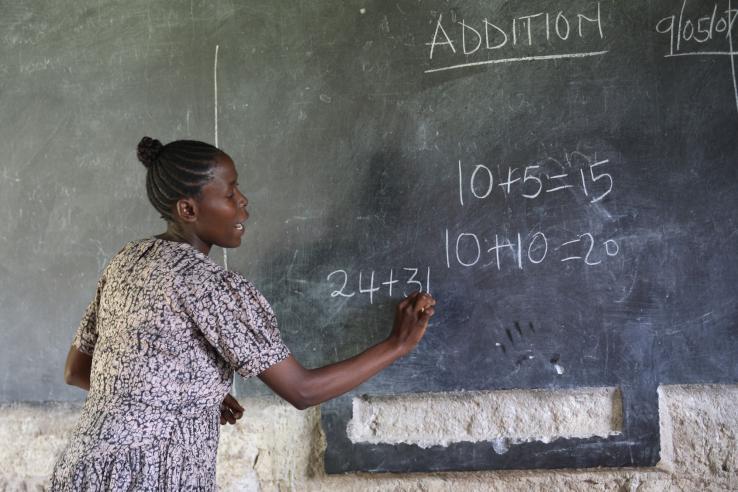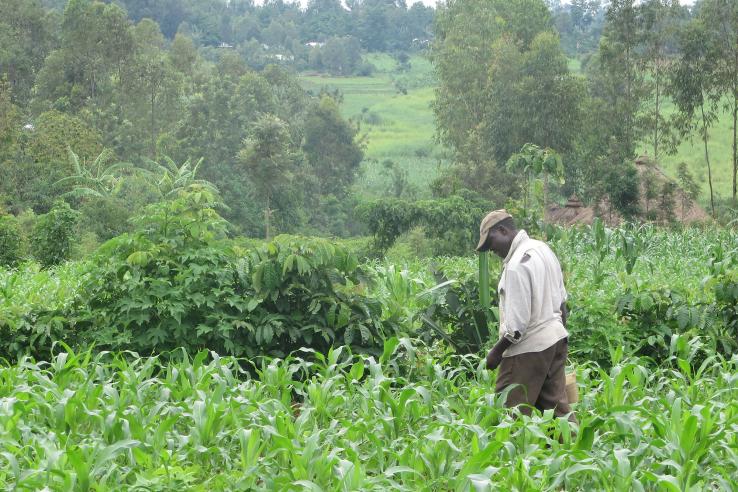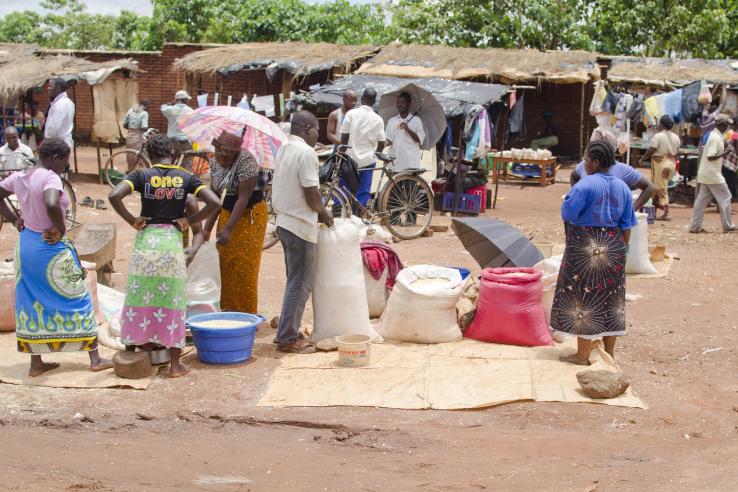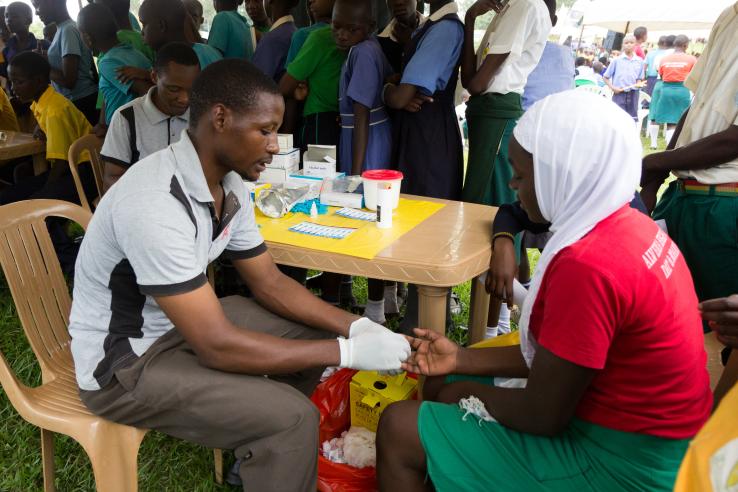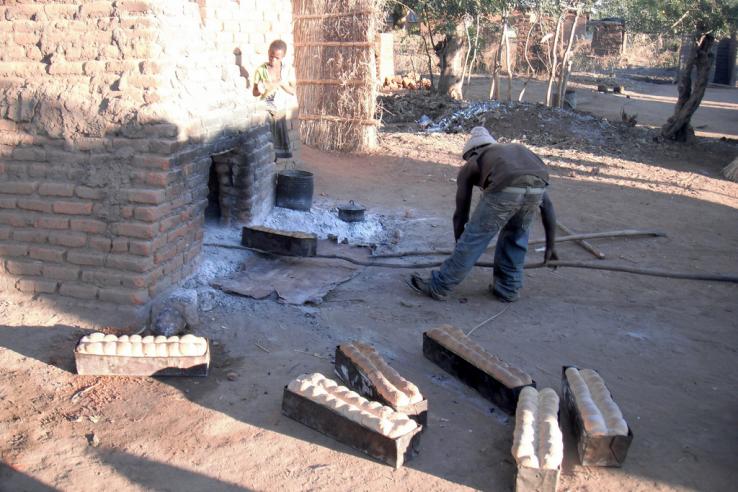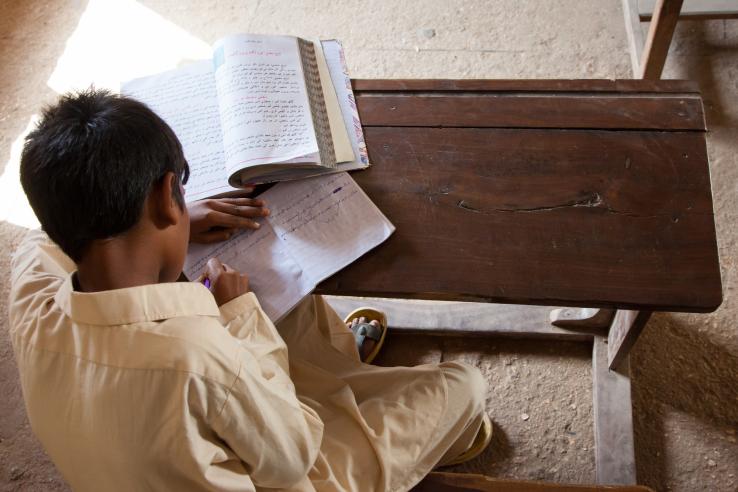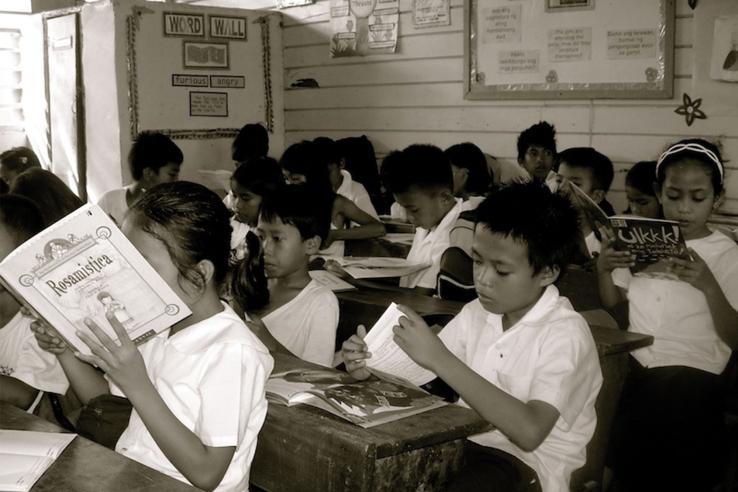Displaying 4411 - 4425 of 8489
Evaluation
There is substantial evidence that, in the short-term, conditional cash transfer (CCT) programs improve health and nutritional outcomes for young children. Researchers studied the effects of a CCT program in Mexico, which required school attendance and preventive medical care, on child health and development up to a decade after the launch of the program. They found that larger cumulative cash transfers resulted in significantly better outcomes in many aspects of children’s physical, cognitive, and language development. The improvements in child development were more linked to the cash transfers themselves than to the required health and education components.
Evaluation
In Ghana, researchers worked with a bank that provides services to low-income customers with limited access to mainstream banking to evaluate the impact of sending pre-recorded informational voice calls and text messages on the adoption of mobile banking. Clients that received messages encouraging mobile banking were more likely to use mobile banking services and repay loans on time, while clients that received messages encouraging savings only had no measurable change in behavior.
Evaluation
Researchers provided educational flipcharts to 89 randomly selected Kenyan primary schools and evaluated their impact on student learning, comparing retrospective and prospective estimates. In the prospective study, the estimated impact of flipcharts on student test scores was found to be close to zero. In contrast, the retrospective study seriously overestimated the impact of the intervention.
Evaluation
Fertilizer use has been promoted to boost agricultural productivity and increase farmers’ yields and income. Researchers conducted a randomized evaluation among rice farmers in Bangladesh to evaluate the impact of providing leaf color charts and basic training on the quantity and timing of fertilizer use and crop yields. Fertilizer use declined while yield moderately increased for farmers.
Evaluation
In Lilongwe, Malawi, researchers provided applicants for a health interviewer job with a random chance of receiving a back-up job, regardless of their success in being hired as a health interviewer, to measure (a) the impact of uncertainty on job search performance and (b) the returns to work experience on future employment and earnings. Job seekers performed better, despite lower job search effort, when they had higher job certainty. Job seekers who received a back-up job through the program had significantly higher daily wages for at least eight months following the program.
Evaluation
Researchers in the United States assessed the impact on college students of having a roommate from a different race. White students assigned to a black roommate were more likely to endorse affirmative action policies than those assigned to a white roommate. Other factors, such as having roommates from high-income or low-income backgrounds, also influenced students' behavior and attitudes towards social issues.
Evaluation
Researchers conducted a randomized evaluation in western Kenya to test how farmer participation in agronomic trials impacted their experimentation on their own farms with different input combinations and impacted their use of high-quality inputs, yields, adoption of new crops, and profitability. Farmers, particularly those with higher skills, who participated in the trials were quick to experiment and learn about different combinations of inputs and practices. However, their agricultural profits decreased across five agricultural seasons, possibly due to experimentation with new combinations of inputs and practices, while lower skilled farmers benefitted from higher skilled farmers' experimentation.
Evaluation
Researchers evaluated the impact of mixed Christian-Muslim soccer teams on social cohesion and interactions between these groups in an ISIS-affected area of Iraq. Christians who played on mixed teams demonstrated a higher likelihood of engaging with Muslim teammates after the league ended, but the intervention did not improve their overall tolerance toward the Muslim community.
Evaluation
Researchers in France evaluated the impact of a series of informational meetings with education officials on parents’ involvement and their children’s behavior and performance at school. They found that parents became substantially more involved, and all children (even those whose parents were not invited to meetings) were truant less often, displayed a better attitude in class, and were less likely to be disciplined.
Evaluation
Researchers studied the effects of a credit card interest rate increase among low-income subprime borrowers in the UK to assess its impact on credit card demand, overall indebtedness, and borrowers’ ability to pay. They found that following the rate hike, subprime borrowers who appeared to be more financially stable reduced their demand for new credit by 42 percent more than their counterparts who did not receive the rate increase. Overall, borrowers did not reduce their indebtedness and incurred higher interest charges, resulting in higher revenues for the lender and a larger debt burden for borrowers.
Evaluation
Researchers partnered with a local bank to learn how customers chose between two account types—an account that had been offered for many years, which carried high monthly fees but no individual transaction costs, or a new type of account that charged for each withdrawal but did not impose monthly maintenance fees. Customers without an existing account recognized the advantages of the new type of account and overwhelmingly chose to open one, while many customers with the existing account type did not switch to the new one. However, of the existing customers, those who used their account more due to receiving a financial transfer in the past did switch to the new account type, suggesting that more experience using financial products can improve financial decision-making.
Evaluation
Researchers introduced a Voluntary HIV Counseling and Testing (VCT) program to young females in Malawi to determine whether the program affects risky sexual behavior and school performance. They found no overall effect of VCT on risk of sexually transmitted infections or achievement test scores. However, those who tested positive for HIV had increased rates of other sexually transmitted infections, and those who were surprised by negative HIV test results experienced a significant improvement in test scores.
Evaluation
In Malawi, researchers evaluated the impact of a vocational training program on youth's skills, economic outcomes, and well-being. While the training generally improved skills and well-being, it had more positive effects for men compared to women, and had no impact on labor market outcomes in the short run for either gender.
Evaluation
In this study, researchers introduced report cards with child and school test scores to evaluate the impact on public and private schools’ cost, performance, and enrollment. The program reduced private school fees, improved test scores, and increased primary school enrollment.
Evaluation
Researchers evaluated a 31-day read-a-thon where students were encouraged to read as many books as possible through daily reading activities in school, such as storytelling sessions, reading games, and posters that display each class’s progress. Overall, the results suggest that encouraging an increased use of age appropriate reading materials by students was a viable strategy for improving student’s reading skills.


